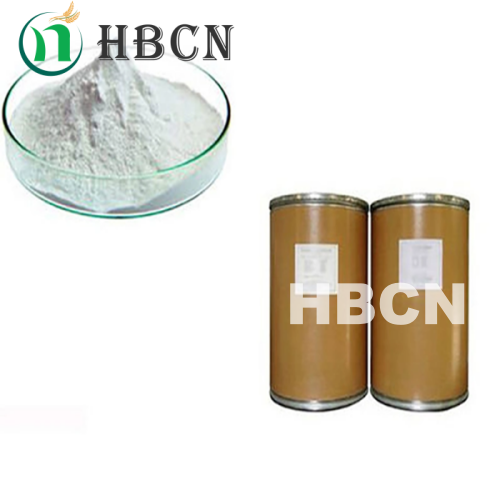
Th10 . 21, 2024 01:50 Back to list
Nicosulfuron Usage and Application in China’s Agricultural Sector
Nicosulfuron A Key Player in China’s Agricultural Landscape
Nicosulfuron, a selective herbicide belonging to the sulfonylurea family, has gained considerable attention in China’s agricultural sector. As the nation strives to enhance agricultural productivity and ensure food security, nicosulfuron presents a promising solution for managing problematic weed species, particularly in maize (corn) cultivation. With its unique mode of action, efficiency, and growing adoption, nicosulfuron plays a pivotal role in modern agronomy in China.
The Importance of Herbicides in Agriculture
Herbicides are vital in modern agriculture as they help control the growth of unwanted plants, thus allowing crops to flourish. In China, where farming practices are intensifying to meet increasing food demands, the efficient use of herbicides can significantly impact crop yields. Nicosulfuron is particularly effective against a wide range of grassy and some broadleaf weeds that compete with maize for resources, thus ensuring the crop can develop without hindrance.
Mode of Action and Effectiveness
Nicosulfuron operates through the inhibition of specific enzymes involved in the biosynthesis of essential amino acids—valine, leucine, and isoleucine—by inhibiting the acetolactate synthase (ALS) enzyme. This action results in the disruption of metabolic processes in targeted weed species, leading to their death. Its selective nature allows nicosulfuron to effectively control weeds while being safe for maize plants when applied according to label instructions.
In addition to its effectiveness, nicosulfuron is characterized by its systemic properties, which means it can be absorbed through the foliage and translocate within the plant. This capability increases its efficacy against perennial weed species, making it a versatile tool for farmers. The herbicide has demonstrated good residual activity, providing weed control for an extended period after application, which is vital in managing successive weed populations throughout the growing season.
Adoption in China’s Agricultural Practices
china nicosulfuron

The adoption of nicosulfuron in China has been facilitated by the rapid development of genetically modified (GM) maize varieties that confer herbicide tolerance. By integrating nicosulfuron into their weed management programs, farmers can improve maize yields and minimize the impact of resistant weed populations. With the increasing prevalence of herbicide-resistant weeds, the strategic use of nicosulfuron becomes even more critical.
As of recent years, the Chinese government has been promoting the use of advanced agricultural technologies, including herbicide-resistant crops and efficient herbicides like nicosulfuron, as part of its broader effort to enhance agricultural output and ensure environmental sustainability. By providing training and resources to farmers, the government encourages the responsible use of nicosulfuron, emphasizing the importance of integrated weed management practices.
Environmental Considerations and Safety
While the benefits of nicosulfuron are notable, environmental considerations must also be addressed. The persistent use of any herbicide can lead to the development of resistant weed populations and potential adverse effects on non-target plants and organisms. Therefore, it is crucial for farmers in China to employ integrated weed management strategies that combine cultural practices, biological control, and judicious herbicide use to mitigate these risks.
Furthermore, regulatory frameworks in China are increasingly focused on ensuring the safe use of agrochemicals. This includes monitoring and research to assess the environmental impact of herbicides like nicosulfuron. Implementing sustainable agricultural practices is essential for maintaining the ecological balance and ensuring the long-term viability of farming systems.
Conclusion
Nicosulfuron has emerged as a critical herbicide in China’s agricultural landscape, particularly in maize production. Its effectiveness in controlling a broad spectrum of weeds, coupled with the adoption of herbicide-tolerant crops, offers farmers an essential tool for improving productivity. However, as with any agricultural input, the responsible use of nicosulfuron, combined with sustainable practices, is vital in safeguarding the environment while meeting the food security needs of an ever-growing population. Through a balanced approach, nicosulfuron can continue to play a significant role in the enhancement of agricultural efficiency in China.
-
Azoxystrobin: Broad-Spectrum Fungicide Solutions
NewsAug.11,2025
-
Best EPA Boscalid: Superior Crop Fungicide for Max Yields
NewsAug.11,2025
-
Best Willowood Imidacloprid: Superior Pest Control Solutions
NewsAug.10,2025
-
Best EPA Boscalid Fungicide: Ultimate Crop Protection
NewsAug.09,2025
-
Cyprodinil Fungicide: Broad-Spectrum Crop Protection
NewsAug.08,2025
-
Tembotrione Herbicide: Advanced 8% OD for Broad Spectrum
NewsAug.07,2025
